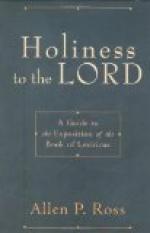The work of the great mathematicians of the nineteenth century—Gauss, Riemann, Lobatschefsky, Bolyai—offered further evidence that space is not an empirical deduction from nature, but a conception of the mind, by showing that various forms of space can be conceived, differing from one another and from the form in which the mind has cast the events of nature (the “Euclidean” space). Finally, physical science, in the theory of relativity, has deduced the same conclusions: space and time do not exist in nature by themselves, as empty space and empty time, but their existence is only due to things and events as they occur in nature. They are relative in the relation between us and the events of nature, so much so that they are not fixed and invariable in their properties, but depend upon the observer and the conditions of observation.
We can get an idea of how utterly our perception of nature depends on the particular form of our time conception by picturing to ourselves how nature would look if our time perception were 100,000 times faster, or 100,000 times slower.
In the first case, with our sense perceptions 100,000 times faster, all events in nature would appear to us 100,000 times slower. This would then be a stationary and immovable world. The only motion which we could see with our eyes would be that of the cannon ball, which would crawl slowly along, at less than a snail’s pace. The express train going at sixty miles per hour would appear to stand still, and deliberate experiment be required to discover its motion. By noting its position on the track, and noting it again after a period of time as long as five minutes appears to us now, we should find its position changed by three inches. It would be a dangerous world, as there would be many objects—not distinguishable to the senses from other harmless objects—contact with which would be dangerous, even fatal; and one and the same object (as the express train) might sometimes be harmless (when at rest), sometimes dangerous (when in motion), without our senses being able to see any difference.
On the other hand, with our sense perceptions 100,000 times slower, all events in nature would appear to us to occur 100,000 times faster. There would be little rest in nature, and we should see plants, and even stones, move. We should observe, in a period of time not longer than a minute or two appear to us now, a plant start from seed, grow up, flower, bring fruit, and die. Sun and moon would be luminous bands traversing the sky; day and night alternate




